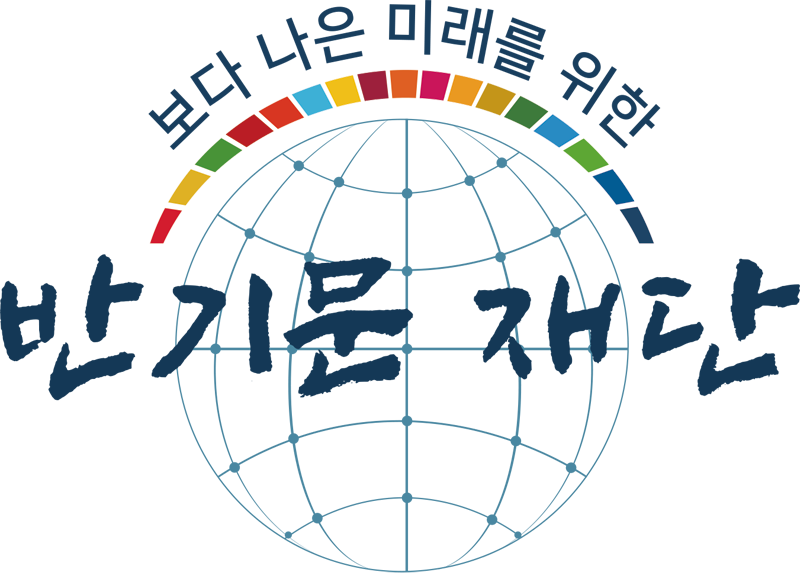[2024-12-01] FORMER UN CHIEF BAN KI-MOON ACCEPTS MIWON PEACE PRIZE ON BEHALF OF THE ELDERS

Former UN Secretary-General Ban Ki-moon, right, claps as he receives the trophy for the inaugural Miwon Peace Prize on behalf of The Elders at Kyung Hee University’s Peace Hall in Dongdaemun District, eastern Seoul, on Friday. Kyung Hee University Chancellor Choue In-won, far left, and former Director-General of Unesco Irina Bokova clap to congratulate Ban. [PARK SANG-MOON]
Former UN Secretary-General Ban Ki-moon on Friday stressed the importance of prioritizing multilateralism, urging global leaders to take action as the world grapples with violent conflicts, deepening polarization and geopolitical rivalry.
Ban’s remarks came as he accepted the inaugural Miwon Peace Prize on behalf of The Elders, a nonprofit organization founded by Nelson Mandela in 2007, during a ceremony at Kyung Hee University’s Peace Hall in Dongdaemun District, eastern Seoul.
“Multilateralism remains our greatest hope for avoiding catastrophe, safeguarding our collective future and delivering the just outcomes the world needs,” Ban said during his acceptance speech.
“This is why securing functioning and effective rules based on the multilateral system must be a priority.”
The Miwon Peace Prize was established to honor the legacy of Miwon Choue Young-seek, founder of Kyung Hee University. A peace activist and philosopher, Choue proposed the International Day of Peace and the International Year of Peace to the United Nations in 1981. The UN General Assembly adopted the proposal the same year, officially designating these as global observances.
The biannual award was presented to The Elders for its dedication to and contributions toward world peace.

Former UN Secretary-General Ban Ki-moon delivers his acceptance speech for the inaugural Miwon Peace Prize presented to The Elders at Kyung Hee University’s Peace Hall in Dongdaemun District, eastern Seoul, on Friday. [PARK SANG-MOON]
Irina Bokova, former director-general of Unesco and chair of the prize’s selection committee, said that the award was granted not for a single achievement but for “the history of the engagement of the group — from peace to multilateralism, human rights and sustainable development through international cooperation.”
“We all agreed on The Elders, which is a group of international leaders with proven commitment and experience, but also looking very much into the future of how to negotiate and work for the prevention and solution of conflicts,” Bokova said during a press conference before the ceremony.
The Elders comprises 12 members, including its chair Juan Manuel Santos, former president of Colombia and a Novel Peace laureate, and deputy chair Ban, who served as UN secretary-general. This marks the first time The Elders has received an award as a group.
In his speech, Ban reflected on current global challenges.
“We are witnessing the global explosion of conflict, atrocity, crimes and impunity — from Gaza to Ukraine, Sudan to Myanmar and countless other countries,” he said.
He also pointed out that the foundations of the post-1945 international order are “rotting through neglect, complacency and sabotage,” in which the resulting dysfunction and double standards are “exacerbating the profound lack of trust between countries and the rising violent conflicts.”
“Let us work together with global citizenship,” he urged.

Former UN Secretary-General Ban Ki-moon, center, engages in a dialogue with former President of Ireland Mary Robinson, who joins via video call, moderated by former Director-General of Unesco Irina Bokova, left, at Kyung Hee University’s Peace Hall in Dongdaemun District, eastern Seoul, on Friday. [PARK SANG-MOON]
Following the ceremony, Ban participated in a dialogue with former President of Ireland Mary Robinson, the former chair and an active member of The Elders, who joined via video call. They shared their perspectives on prioritizing and addressing conflicts, as well as the potential future contributions of The Elders to the world.
“The first task that Nelson Mandela gave The Elders was to bring hope,” Robinson said, emphasizing the need to properly address existential threats Ban mentioned, including the climate crisis, pandemics, nuclear weapons and unregulated artificial intelligence.
Robinson highlighted the importance of intergenerational collaboration in tackling these challenges. “We need to add to the long-view leadership co-creation with different generations,” she said.
According to Ban, the concept of long-view leadership involves showing the determination to resolve intractable problems rather than simply managing them, applying wisdom based on scientific evidence and reason and demonstrating humility by listening to those affected.
Source: Korea JoongAng Daily



